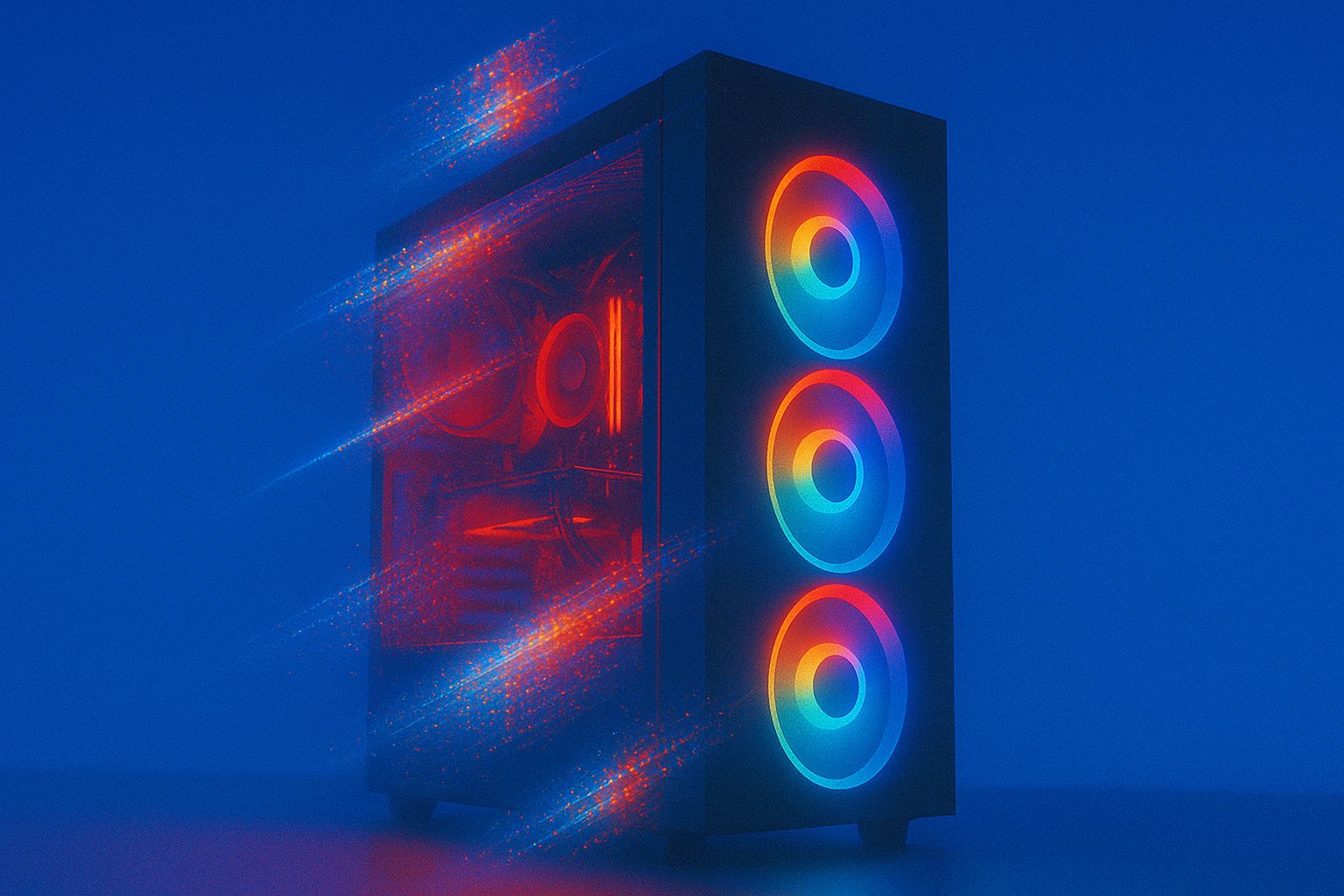- Beluga Files
- Posts
- Can You Write Off Your Gaming Setup?
Can You Write Off Your Gaming Setup?
Because apparently the IRS has rules

Yes, but here’s the catch
If you’re a creator, odds are your work setup is… let’s say, more RGB than a cubicle with a Windows XP computer. You’ve got a mic that looks like it belongs in a recording studio, two monitors that could double as small TV screens, and a chair that even Max Verstappen would be jealous of.
So when tax time comes around, the question inevitably hits: can I write off my gaming setup?
The short answer: Yes. The longer answer: Yes, but please don’t get creative in the “I only ever touch my computer for work” sense.
Quick note: I’m mainly talking about U.S. federal tax rules here. States can have their own quirks (sometimes big ones) so it’s worth checking your state’s guidelines.
The IRS is not Impressed by your Ring Light
Let’s start here: The IRS does not care that your PC has a liquid cooling system named after a Thor’s hammer (looking at you Mjolnir Vision.) What they do care about is whether your gear is used for work. If you stream on Twitch, film YouTube videos, or run a channel that actually brings in income, that gaming PC isn’t jsut for late night Valorant. It’s a part of your business.
The key phrase is ordinary and necessary. Ordinary = something people in your line of work normally buy. Necessary = it helps you do your job.
For a creator, a decent gaming setup checks both boxes.
But you Have to Prove It
Here’s where people get tripped up. The IRS doesn’t take your word for it just because you have a cute little “content creator” bio on Instagram. You need proof.
Keep receipts (digital or otherwise).
Make a habit of Logging what you use your gear for - even quick notes like “recorded Fortnite stream” or “edited brand collab video” help.
If you also use your setup for personal stuff (and let’s be honest, you do), be ready to allocate. That $3,500 PC might be 70% business use, 30% personal. You can still deduct, but not the whole thing.
Decide whether you can deduct it all in the year you bought it or depreciate it over time. The IRS lets you write off equipment gradually using something called the Modified Accelerated Cost Recovery System (MACRS) - basically, spreading the deduction across a few years. This is required for high-ticket gear you’ll use for a while (like a PC or a high-end camera).
TLDR; If any single item costs $2,500 or less, you can usually deduct the full amount in the year you bought it. Anything over $2,500, you’d want to write it off gradually using MACRS depreciation.
Don’t go Deduction-Crazy
A quick note before you start itemizing your Funko Pop collection (I do love me some Funko’s):
Just because something is near your setup does not make it a business expense. Your desk? Yes. Your ergonomic mouse? Yes. The six-foot-tall cardboard cutout of Keanue Reeves? Probably not, unless it’s in every single video you make - and even then, good luck explaining the ordinary and necessary nature of that one to the IRS.
A lot of things people want to expense don’t have to be all-or-nothing. It can be a percentage.
The Pro Move
Here’s the smartest way to handle it: treat your setup like the investment it is. Keep your receipts, separate your business and personal spending, and track your purchases as you go. Not in April. Not “whenever you get around to it.” Now.
That way, you’re not digging through old Amazon orders at 2 am, trying to remember if that “streaming light” was for your Twitch channel or FaceTime calls with mom.
Bottom Line
Yes, you can write off your gaming setup. No, you can’t write off your entire Steam library. Keep it legit, keep it documented, and you’ll be fine. And if you want to make this whole process stupidly easy, Beluga Labs automatically tracks and categorizes your expenses - so next year, you can spend less time arguing with tax rules and more time arguing with strangers online.
Bonus deductions lots of creators miss:
Expense | Why It’s Deductible | Example for Creators |
|---|---|---|
Props & Set Decor | If they appear in your content, they’re part of your production costs. | A neon sign in the background of your Twitch stream. |
Music & Sound Effects | Licensing fees for content are business expenses. | Paying for a sound effect pack for YouTube intros or soundboards. |
Part of Your Internet Bill | The percentage you ue for business counts. | 70% of your monthly internet bill if streaming / filming is your main job. |
Keep on Creating!
— The Beluga Labs Team